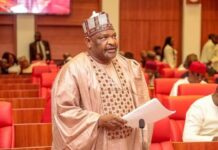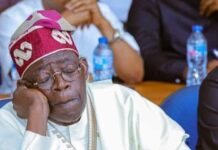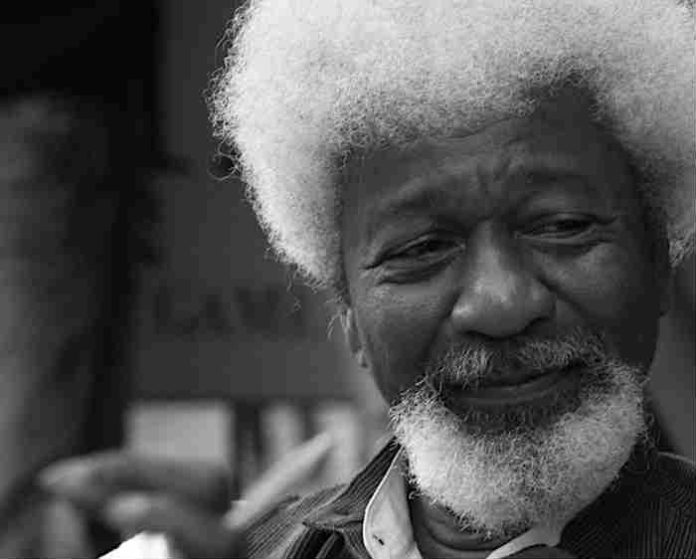Stakeholders have committed to taking up the task of creating an enabling environment for the development of cartooning in the Nigerian news media. This move occurred at the launch of the Art of the Cartoon: Imaging social realities programme, organised by the Wole Soyinka Centre for Investigative Journalism, WSCIJ, which held on Friday 2 December, 2016, in Alausa, Ikeja, Lagos.
At the end of the event, which was moderated by Art lecturer from the University of Lagos, UNILAG, Ganiyu Jimoh, cartoonists in attendance submitted that WSCIJ’s leadership at revitalising the art challenged them and held a meeting towards revamping the Cartoonists’ Association of Nigeria and work together for the benefit of the art.
Before then, Lai Oso, a Professor of Mass Communication at the Lagos State University School of Communications, who represented Professor Soyinka, mentioned that his experience as a four-time chairperson of the Wole Soyinka Award for Investigative Reporting proves that the quality of investigation in editorial cartooning is low. He therefore encouraged that the art be improved. According to him, cartoonists should focus on exposing other social realities apart from developing political pieces.
Wole Soyinka, in a video clip aired during the event, opined that images are often more powerful than words. He recalled how cartoonists served at the forefront of the fight against military rule in Nigeria when most of the other genres had been muffled by the dictatorship. According to him, the very often witty, and sometimes in-your-face caricatures, laded with humour punctured the affiliates of power. ‘It is very difficult to prove a case against the cartoonists’, said the Nobel Laureate.
WSCIJ Coordinator, Motunrayo Alaka, presented the preliminary draft report of a one-month monitoring of seven national newspapers – The Vanguard, The Punch, This Day, Business Day, The Guardian, New Telegraph, and Daily Trust, conducted by the WSCIJ. The report highlights trends in cartooning in Nigeria. In particular, it reveals gaps in the genre, sighting poor satiric depth, lack of use of cartoons by the online media platforms, scarcity of female cartoonists and the absence of cartoonists on social media, among others.
Cartoonist and lecturer at UNILAG, Akin Onipede who was a discussant at the launch, posited that cartoons have the capacity to shape society. According to him, cartoonists literally get away with murder compared with other reporters. Onipede, however, lamented that the golden age of cartooning is gone and the profession is now endangered due to sundry challenges including, poor remuneration, relegation of cartoonists to the background in newsrooms and unavailability of cartooning as a course in tertiary institutions.
Ropo Sekoni, the Professor of English who chairs the WSCIJ Board of Trustees, in his remark, called attention to the first comic strip in Nigeria, the defunct, Aworerin,applauding its depth. He emphasised that there must be ways to ensure cartoonists thrive in their trade. He went on to highlight the fact that poor educational quality makes, the appreciation of what he calls, “the epistemology of a good cartoon” difficult for the Nigerian audience. According to him, this knowledge challenge endangers the art.
Senior Cartoonist at the Business Day and three-time winner of the Wole Soyinka Award for Investigative Reporting, Mike Asukwo, urged cartoonists to repackage their work, think outside the box and get their cartoons published through different means, notwithstanding the poor pay challenge in the Nigerian news media.
In his closing remark, former Editor of The Guardian newspaper, Jahman Anikulapo, who represented the Wole Soyinka Foundation, thanked all participants at the event while advising cartoonists to attend editorial meetings and aspire to the highest office in the newsroom.
The Art of the Cartoon programme was conceived by the WSCIJ to further the cause of news by multiple means. The organisation seeks, in addition to its award category in editorial cartoon, to contribute to raising discussion on the status of cartooning in Nigeria’s news media. It plans to use the initiative to develop the capacity of reporters in the genre, by stimulating the culture of satirical, investigative and humorous cartoons through training and mentoring.



























